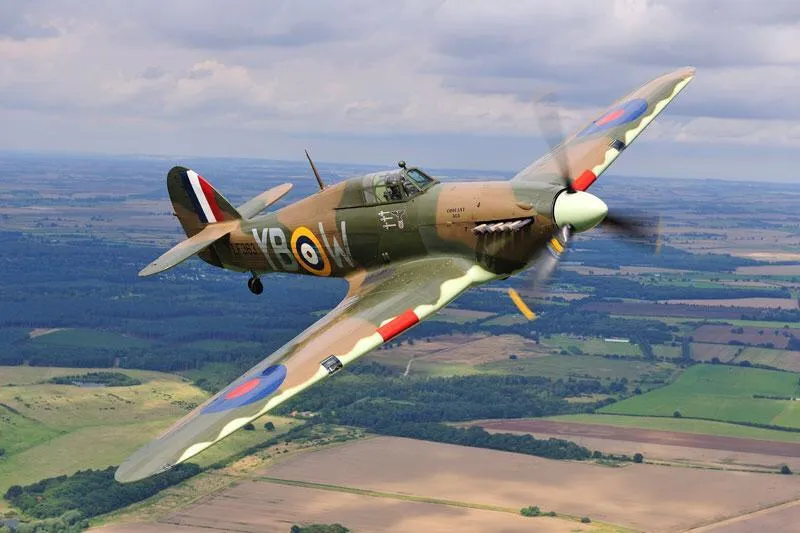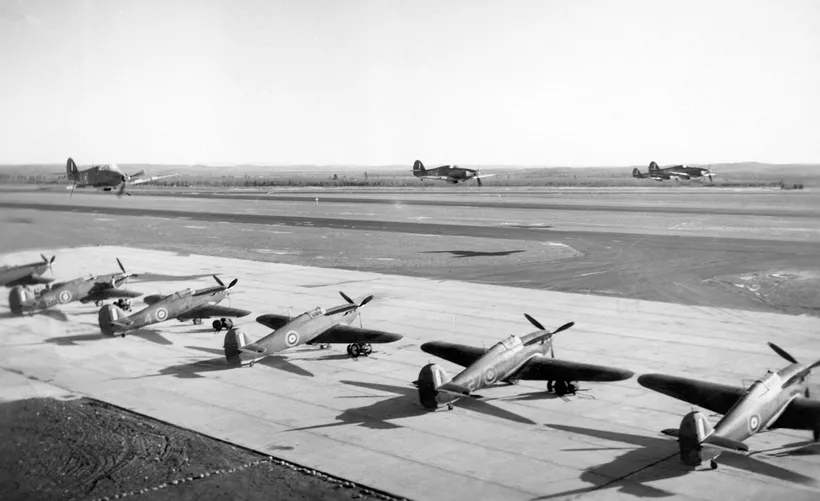Brooks, Reginald Maurice (Flying Officer)
Killed in Flying Accident 1944-April-27


Birth Date: 1920-May-16
Born:
Parents: Son of Maurice O. Brooks and Nellie G. Brooks, of Moncton.
Spouse:
Home: Moncton, New Brunswick
Enlistment:
Enlistment Date: unkown date
Service
RCAF
Unit
1 OTU- Operational Training Unit
Base
RCAF Stn. Bagotville, Quebec
Rank
Flying Officer
Position
Pilot
Service Numbers
J/15294
This incident involved multiple aircraft:
- Hurricane Mk. XII Serial: 5701
- Hurricane Mk. XII Serial: 5736
All the above aircraft in the above list are referenced in this report.
Crew or Other Personnel
Hurricane 5701
Hurricane serial: 5701

Source BBMF
The Hawker Hurricane is a single-seat fighter aircraft of the 1930s"“1940s that was designed and predominantly built by Hawker Aircraft Ltd. for service with the Royal Air Force (RAF). The Hurricane developed through several versions, as bomber-interceptors, fighter-bombers, and ground support aircraft in addition to fighters. Versions designed for the Navy were popularly known as the Sea Hurricane, with modifications enabling their operation from ships. Some were converted to be used as catapult-launched convoy escorts. By the end of production in July 1944, 14,487 Hurricanes had been completed in Britain and Canada.
A major manufacturer of the Hurricane was Canadian Car and Foundry at their factory in Fort William (now Thunder Bay), Ontario. The facility's chief engineer, Elsie MacGill, became known as the "Queen of the Hurricanes". The initiative was commercially led rather than governmentally, but was endorsed by the British government; Hawker, having recognized that a major conflict was all but inevitable after the Munich Crisis of 1938, drew up preliminary plans to expand Hurricane production via a new factory in Canada. Under this plan, samples, pattern aircraft, and a complete set of design documents stored on microfilm, were shipped to Canada; the RCAF ordered 20 Hurricanes to equip one fighter squadron and two more were supplied to Canadian Car and Foundry as pattern aircraft but one probably did not arrive. The first Hurricane built at Canadian Car and Foundry was officially produced in February 1940. As a result, Canadian-built Hurricanes were shipped to Britain to participate in events such as the Battle of Britain. Canadian Car and Foundry (CCF) was responsible for the production of 1,451 Hurricanes. Wikipedia and Harold A Skaarup Web Page
Aircraft Images
Hurricane 5701
Hurricane Mk. XII 5701
Delivered to long term storage in Halifax, Nova Scotia,, pending delivery of radiator. Issued to No. 1 Operational Training Unit on 7 March 1944. Allocated to No. 4 Repair Depot on 27 April 1944, for write off following a collision with Hurricane 5736 of the same Unit during formation training at 14:30 on the same date. Both aircraft came down near Cannaan Village, Nova Scotia. Other pilots in the formation reported icing encounters just before the collision. The instructor in #5701, Flying Officer R.M. Brooks, was killed in this aircraft.1943-01-05 Taken on Strength 2019-08-20
1944-April-27 Accident: 1 Operational Training Unit Loc: Kentville Nova Scotia Names: Brooks | Harvey
1944-04-27 Accident Category A 2022-02-09
1944-06-06 Struck off Strength written off, reduced to spares and produce 2022-02-09
Hurricane 5736
Hurricane Mk. XII 5736
Delivered to long term storage pending delivery of radiators, issued from storage on 7 March 1944, lent to BCATP (British Commonwealth Air Training Plan). Allocated to No. 4 Repair Depot at Scoudouc, New Brunswick, on 27 April 1944 for salvage, following a Category "A" crash near Kentville, Nova Scotia, on that date. Collided with Hurricane #5701 of the same Unit during formation training at 14:30 on the same date. Both aircraft came down near Cannaan Village, Nova Scotia. Other pilots in the formation reported icing encounters just before the collision. Student pilot in #5736, Sgt. K.G.F. Harvey, RAFVR, was killed.1943-01-20 Taken on Strength Eastern Air Command 2019-08-20
1944-April-27 Accident: 1 Operational Training Unit Loc: Kentville Nova Scotia Names: Brooks | Harvey
1944-04-27 Accident Category A 2022-02-10
1944-06-06 Struck off Strength written off, reduced to spares and produce 2022-02-10
Unit Desciption
1 OTU (1 Operational Training Unit)
The Operational Training Unit (OTU) was the last stop for aircrew trainees. They spent 8 to 14 weeks learning to fly operational aircraft (Hawker Hurricane or Fairey Swordfish, e.g.). The instructors had experience in actual operations, and often were posted to OTUs after their operational tour.